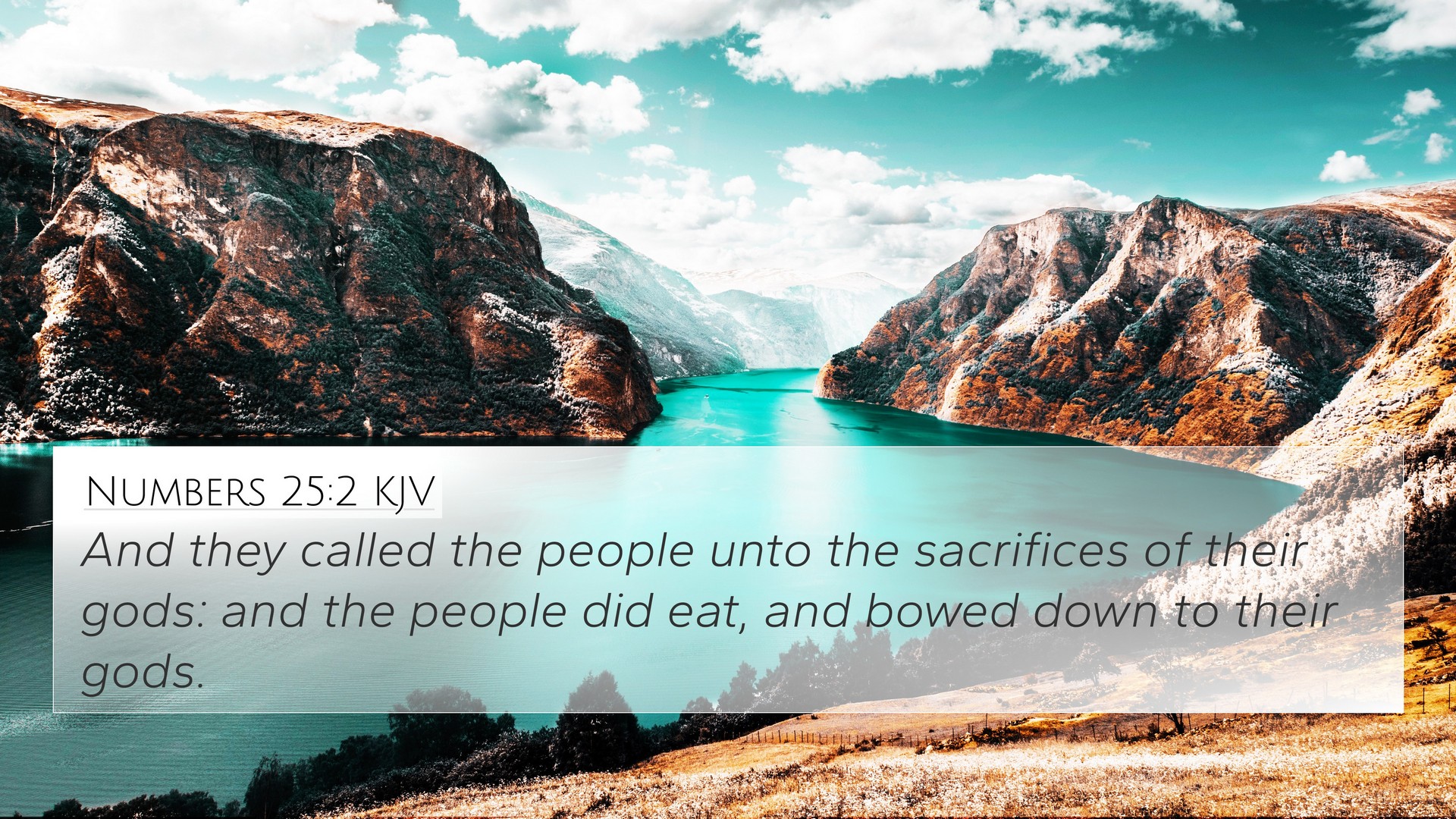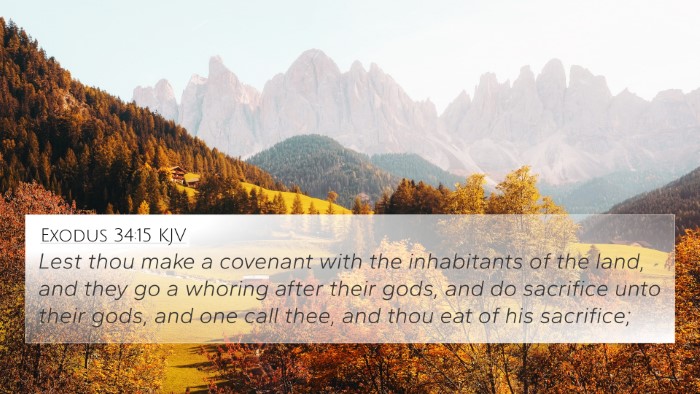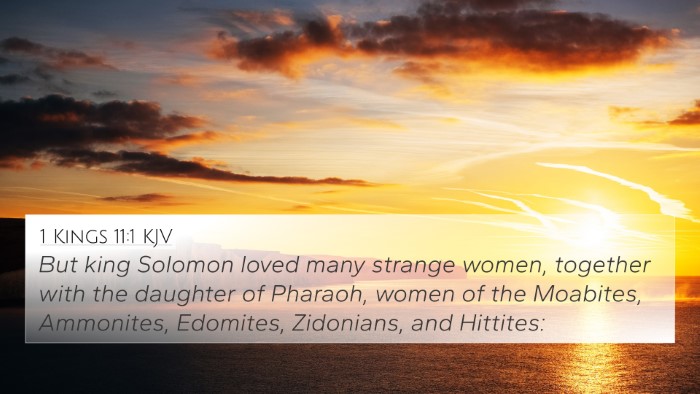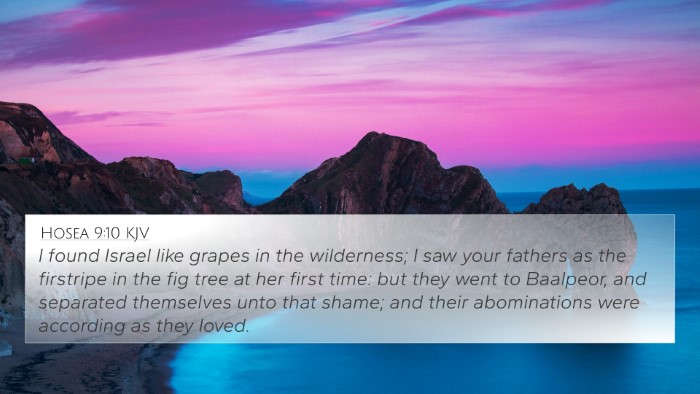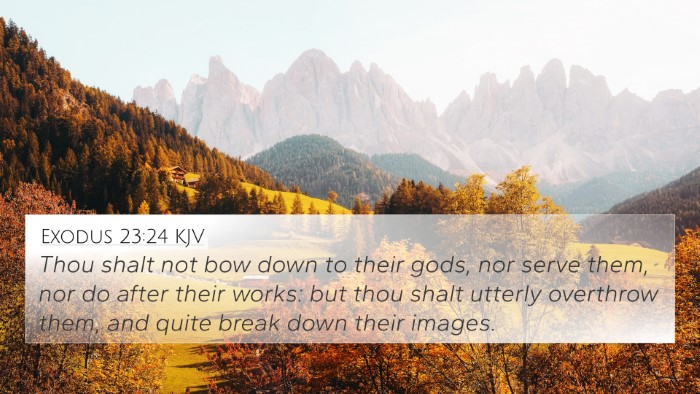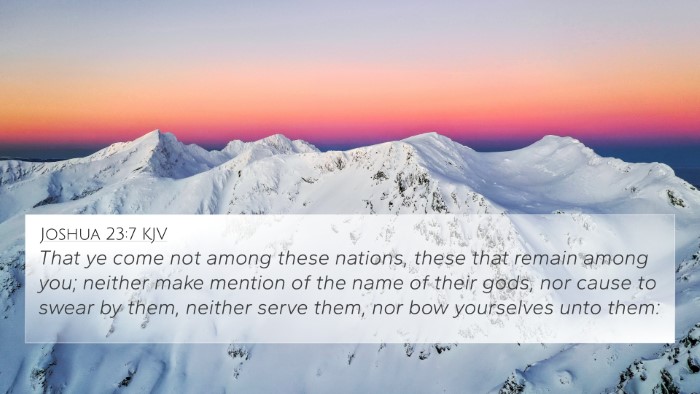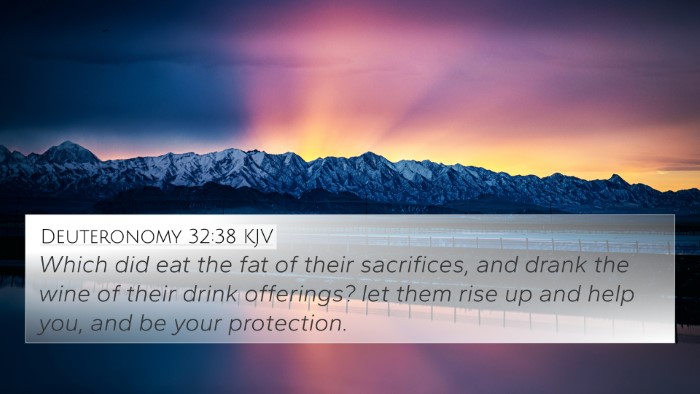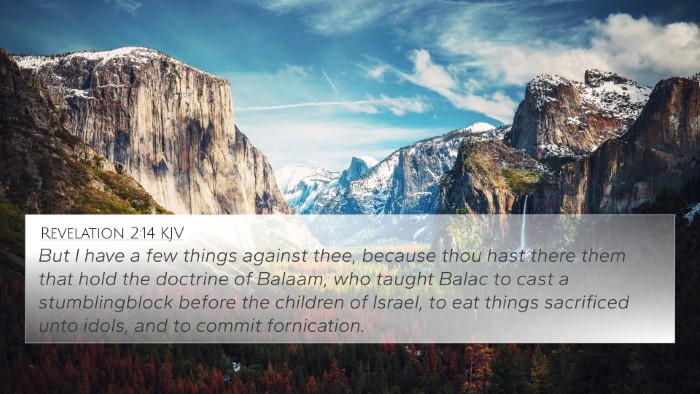Understanding Numbers 25:2
Numbers 25:2 states: "And they called the people unto the sacrifices of their gods: and the people did eat, and bowed down to their gods." This verse reveals a troubling moment in Israel's history, emphasizing the conflict between fidelity to God and the seduction of idolatry.
Verse Context and Significance
The context of this verse is critical. The Israelites, influenced by the Midianite women, engaged in idolatrous practices, leading them away from their covenant with Yahweh. This situation highlights the themes of temptation, idolatry, and the consequences of turning away from God.
Commentary Insights
The insights from Matthew Henry, Albert Barnes, and Adam Clarke provide a clearer understanding of the implications of Numbers 25:2:
- Matthew Henry: He notes that this behavior reflects the susceptibility of the people of Israel to external influences. Henry warns that this act of worshiping foreign gods was not just an act of immorality but a direct affront to Yahweh, indicating a deeper spiritual decay within the community.
- Albert Barnes: Barnes emphasizes the role of seduction in this verse. He points out that the Israelites allowed themselves to be drawn away from God through their desires, illustrating a repeated pattern throughout scripture where God's people struggle with faithfulness amidst surrounding pagan practices.
- Adam Clarke: Clarke provides a more historical analysis, linking this event to the broader narrative of Israel’s wandering and their spiritual struggles. He underscores the seriousness of idolatry and the people’s failure to uphold the covenant, leading to divine judgment.
Bible Verse Cross-References
To deepen our understanding of Numbers 25:2, we can look at various cross-references that highlight similar themes:
- Exodus 32:6: This verse recounts the Israelites worshiping the golden calf, showcasing a similar pattern of idolatry.
- Psalm 106:28-29: This passage reflects on the Israelites’ history of idolatry, identifying their worship of Baal-Peor as a significant sin.
- 1 Corinthians 10:8: Paul references the events in the wilderness, warning the church against sexual immorality and idolatry.
- Revelation 2:14: This verse draws a parallel to the events at Peor, warning the church in Pergamum against similar idolatrous influences.
- Deuteronomy 4:3-4: This passage reflects God’s call to remember and avoid idolatry, reaffirming the consequences of turning to other gods.
- Jeremiah 2:13: God accuses His people of abandoning Him for broken cisterns, a metaphor for idolatry.
- Hosea 4:12: Here, Israel seeks counsel from wooden idols, illustrating their departure from seeking God.
Comparative Bible Verse Analysis
As we analyze Numbers 25:2, it is essential to consider how it resonates across the scriptures. The following points are crucial for comparative study:
- Identifying parallels between the Old and New Testament can reveal insights about God’s character and the consequences of idolatry.
- The themes of temptation and divine judgment recurring in both the Pentateuch and the New Testament highlight a consistent biblical narrative regarding faithfulness.
- Understanding how the Apostle Paul addresses idolatry in his letters can provide valuable guidance for modern believers.
Tools for Bible Cross-Referencing
When studying verses like Numbers 25:2, utilizing comprehensive tools for Bible cross-referencing can greatly enhance your understanding:
- Using a Bible concordance to find words related to idolatry helps trace its occurrences across scripture.
- A cross-reference Bible study guide can streamline the process of discovering interconnected passages.
- Engaging with a Bible chain reference system helps in tracking thematic connections throughout the text.
Conclusion
Numbers 25:2 serves as a poignant reminder of the dangers of idolatry and the importance of remaining true to God's commandments. The insights drawn from various public domain commentaries, coupled with the breadth of relevant cross-references, highlight the rich dialogue within the Scripture about faithfulness, temptation, and God's ultimate judgment on His people.
Whether you are preparing for a sermon or seeking personal growth, exploring these thematic connections and employing effective cross-referencing tools can greatly enhance your biblical understanding and application.
